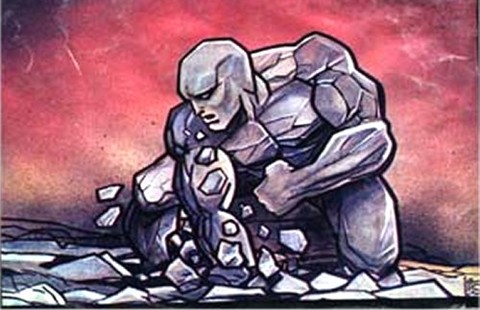
(Cross-posted from Ta-Nehisi Coates)
I know y’all spend a lot of time talking about superheroes, given Ta-Nehisi’s lifelong predilection for Spider-Man, Batman, and various members of the Marvel mutant universe. As a former comic-book nerd myself, who hopes that his cherry copy of Uncanny X-Men #266 (first Gambit appearance!) will someday fund his son’s education, let me add to the conversation by turning your attention toward an all-time favorite site: The International Catalogue of Superheroes, a thorough online compendium of what your peers in Chile, India, and Sweden were reading during their formative years.
There’s a lot of characters to learn about here, from Cat Claw (by far the sexiest heroine from Tito-era Yugoslavia) to the Dutch version of Spiderman (who is disconcertingly slim). But the site isn’t just a smorgasbord of comic-book factoids; it also provides some important lessons on how trends in superhero backstories change over time, and what those changes can tell us about shifts in politics and society.
Take, for example, the case of Super Hrvoje, which loosely translates as “Super Croat.” It is no accident that this Croatian version of Captain America made his debut right as the Balkans were disintegrating in the early 1990s:
As a young boy, Hrvoje and his parents move to Germany, to avoid Yugoslavia’s communist regime, which they didn’t agree with it. However, the Yugoslavian secret service, UDBA, found and assassinated his parents, so Hrvoje became an orphan at young age. He was than taken in by the family of his best friend, Stjepan, and continued to live with them in Germany, in safety. Years later, in the early 90s, Stjepan was in Croatia on an archaeological dig. He discovered an ancient stone-man statuette and a legend surrounding it. The legend spoke of a champion who was orphaned by those who spilled the blood of innocents on the ancient land, and who would defend the land from the attackers. Stjepan immediately recognised his friend Hrvoje being described in the legend, so he sent him a message in Germany to come to Croatia. Hrvoje arrived just in time to find his friend left for dead after being shot by Yugoslavian invaders occupying the excavation site. Stjepan lived long enough to tell Hrvoje about the legend and give him the statuette. Hrvoje then tracked down the Yugoslav army forces in the region and transformed into a stone-man for the first time, becoming Super Hrvoje.
The character apparently had a Serbian counterpart, Super Srbin, who was basically a violent Superman rip-off. I somehow doubt that Jerry Siegel would approve.


Like gas stations in rural Texas after 10 pm, comments are closed.